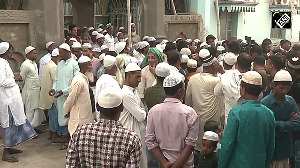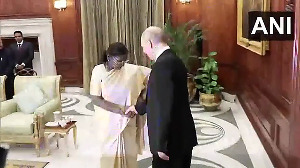Hooking on to Facebook lingo, India's envoy to the United Nations Hardeep Singh Puri said revitalisation of the UN General Assembly is highly "commented upon" but rarely "shared" and faces the danger of having its status "updated" once a year.
Puri said feedback to posts on Facebook is done through three basic options: "Like, Comment and Share". "The best posts usually get large number of 'Likes' and are 'Shared' repeatedly, but the good ones get an equally large number of 'Comment' because there is still scope for further improvement," he said speaking at a debate on the revitalisation of the work of the 193-member General Assembly.
"Spoken in Facebook terminology, at present, GA revitalisation is highly 'commented' upon, much 'liked' but rarely 'shared'. "There is even the danger that if not acted upon quickly, the only function that would be applied to GA revitalization is that it would be consigned to the 'event' category with it 'status' updated once a year," Puri said.
He said UN reform is a process that has to evolve with the evolving international situation. He cited the role major troop contributing countries could play in the UN, but cannot do so because the UN system has not been reformed to make it reflect contemporary global realities.
"Starker still is the stubborn refusal to implement the obvious, such as, the commitment by world leaders in 2005 to bring about early reform of the Security Council," he said adding that the perpetuation of this state of affairs, "sometimes with the active connivance of delegations purely out of narrow-minded national positions emanating from limited ambitions, is a travesty of the Assembly's prerogatives".
Puri said said India is of the belief that General Assembly can be revitalised only when its position as the chief deliberative, policy-making and representative organ of the UN is respected both in letter and in spirit.
The General Assembly should take the lead in setting the global agenda and restoring the centrality of the UN in formulating multilateral approaches to resolving transnational issues, he said.
Puri stressed the need for establishing a proper relationship of respect for mandates between the General Assembly and the Security Council.
"It is particularly important that the Council not encroach upon the mandate of the General Assembly through extremely wide and permissive interpretations of what constitutes a threat to international peace and security, breaches of the peace and acts of aggression".
Puri termed the Council's agenda as "overburdened" since it has anointed itself with the responsibility of dealing with issues, which though seem important, leave it with less time to deal with the "real hotspots" that constitute the real threats to international peace and security.
He said India will raise the issue of balance between the General Assembly and the Security Council in the Ad Hoc Working Group.
In addition, the Assembly must have a greater say in the selection process of the UN Secretary General. He argued that the continued circumscribing of the Assembly's role and responsibilities in the process of selection and appointment of the UN Chief needs to change in the interests of the UN system.
"As it was the General Assembly which limited its own role, it will have to be the General Assembly that claws back its rightful place in the process of selecting the Secretary-General," he said.
India will offer constructive support in discussing substantive measures that would strengthen the role of General Assembly as the chief legislative and policy-making body of the international community, he added.






